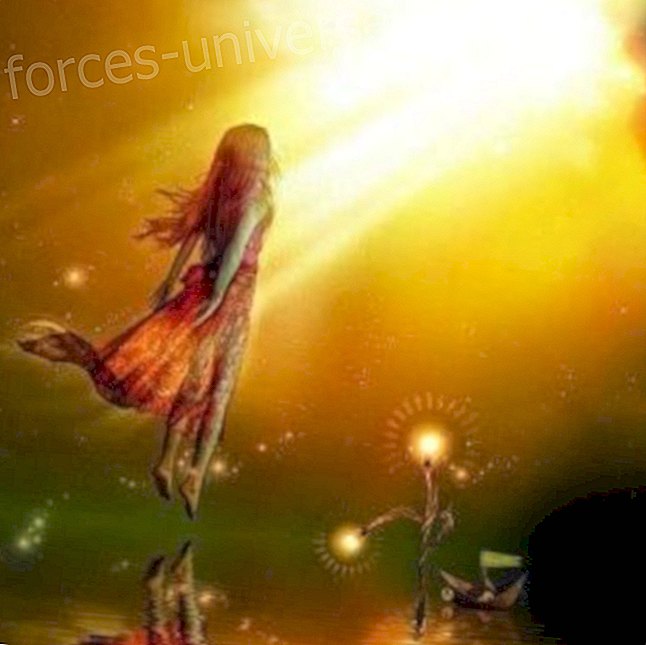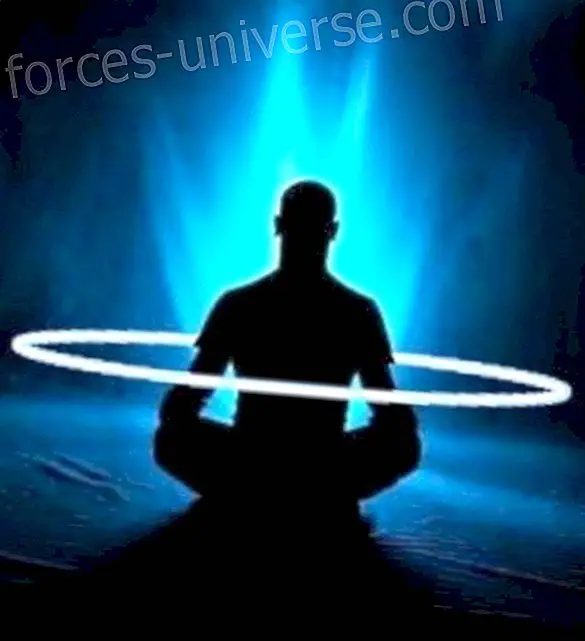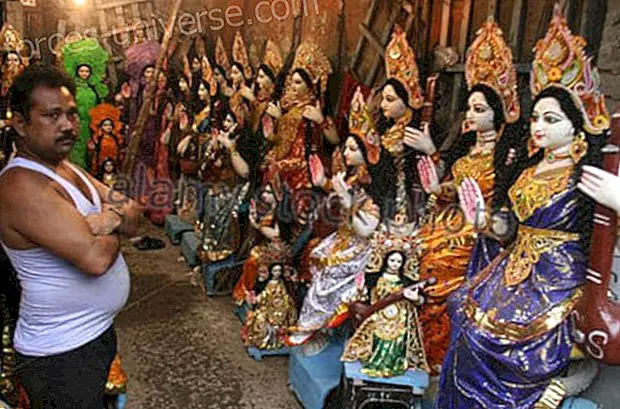 Karma is an Arranged Game - The Archonical Influence on Human Psychology and the Social Order
Karma is an Arranged Game - The Archonical Influence on Human Psychology and the Social Order
This essay is an attempt to explain one of the most puzzling aspects of the human experience:
"karma", that is, the mechanism of cause and effect in human behavior.
If it is not a difficult enough challenge, I will interpret some passages from the Apocrifon of John, a text that presents material about the Archons, unique in the corpus of gnostic writings.
My goal is to show that the Gnostics had an extremely sophisticated view of human self-deception, especially as regards morality and responsibility.
The Sanskrit word karma simply means "action, " but more exactly, "activation, " the way in which one action leads to another in a chain reaction, in which each act in the chain activates the next.
Hinduism and Buddhism refer to the "law of karma" as if it were a mandatory formula somehow implemented by cosmic authorities, or perhaps due to a closed repetition of exchanges of energy in the universe.
According to the usual definition, the law of karma ensures that each act will eventually return to his son in an equivalent way.
Good will return with something good; Evil with something bad. The law works through all events in the course of life, a seemingly inexorable process of destiny, and extends beyond the limits of mortality. The conditions suffered or enjoyed in this life are due to actions in a previous life.
Karma is sometimes called "the moral law of cause and effect . "
It is supposed to be established to encourage good deeds, affectionate deeds, and to deviate from bad, harmful and destructive actions. The Christian formulation is "what you sow, what you reap."
No Remuneration
The compensatory function of karma is sometimes called karmic retribution, that is, a refund.
A person who harms others or will suffer the just punishment, suffering damage or turn, etc. In Hinduism and Buddhism, the teachings on karma are inseparable from the hypothesis of reincarnation.
Why? It is generally believed that karma must act through time, encompassing many lives, because it is a universal principle.
This is a high concept of morality, really . It implies that any action undertaken by a person when he is alive will have repercussions and ramifications after he dies, and eventually bounce on the newly born creature, for better or worse.
In this way, there is a long-term teaching power in the doctrine of karma.
The Tibetan Wheel of Life, illustrating the karmic roundabout of the three poisons, the six kingdoms and the twelve links (nidanas) in the chain of rebirths.
A device of profound psychological teaching, perhaps, but does it really represent the laws that act in human morality, equivalent to the laws of Nature?
In other words, is this design a verifiable picture of chain reactions that occur mechanically in human behavior, or is it just a ploy, a useful model for reading behavior?
Does this represent how the behavior really acts, or does it simply present a scheme to interpret it?
Reincarnation itself is a complicated matter.
The veracity of the karmic retribution depends on whether it is assumed that successive lives really demonstrate a pattern of cause and effect. This premise may be impossible to verify, leaving the law of karma uncertain about something that remains unproven, if not improbable. However, there is a simple way to explain why reincarnation is invoked when the doctrine of karma is promulgated.
In normal reality, karma is not demonstrable. It does not match the facts of reality. It is non-intuitive and non-evidential, not supported by the facts of human experience.
Karma defies common sense and bumps sharply against the obvious .
In human affairs, it is indisputable that people often do harm without receiving damage in return, and good deeds are usually not rewarded, or, as a cynical said, "no good deed is without punishment."
Good people suffer heinous damage. Bad people get their way. Deception is rampant and very often never exposed. If exposed, it is not punished. Perpetrators are almost never asked for accounts. There is very little justice in human reality.
This is a clear and brutal fact of life that must be ignored by a conscious act of denial.
Naked evidence of experience makes it clear that karmic compensation is pure story (bullshit). People occasionally get what they deserve, of course. And it is more satisfying when this happens. Many Hollywood movies base their appeal on this perspective. But as a general rule, that is certainly not the case, and it is not something to be counted on.
Horrible acts occur without the author being known or made responsible. Those who become known and are shown to be guilty of heinous acts often go free. They flaunt impunity. This situation is difficult to accept, but nevertheless the evidence is everywhere in the social order, in politics, in intimate and family matters.
Those who commit wrongdoings rarely receive the same in return, although that may happen in specific situations of gang wars or Mafia enmity.
In such cases, however, it is not necessary to assume that a huge impersonal law of karma works. People take revenge or engage in reciprocal violence. No cosmic law is required there.
Hence the reference to reincarnation:
If I cannot show you how a person's hurtful action is compensated with equivalent damage done to that person, because it is not evident in the course of human affairs, then I will easily return to the stage of successive lives:
The one for which he does not receive his deserved in this life; Well, but you will receive it later, you can be sure of it.
Reincarnation, which cannot be demonstrated, is invoked to underpin a premise that is flatly refuted by the facts of life.
This is an example of what existentialists call mauvaise foi, bad faith, that is, to believe or pretend to believe something that you know is not true, for some second intention, by way of comfort or sense of justice, or simply by a complete inability to accept the bitter truth.
Christianity and Islam are religions whose adherents usually do not consider or accept reincarnation.
But the notion of karmic retribution is inherent in these belief systems. If there is no reincarnation process that ensures fair punishment, no problem, just leave it to the Creator .
Hence the belief in the divine retribution that appears so markedly in those religions: God will punish the evildoers and reward the good behavior of the faithful, who tend to be oppressed and abused; divine judgment will prevail over each person and even over the drama of History. Christians and Muslims cling equally to this conviction with vehement intensity.
Imagine what it would be like to live without the guarantee of retribution: witness what is happening in the world, the ongoing spectacle of injustice, and totally renounce the comfort of just punishment. In the minds of the faithful, living without reward is not an option. It is a terribly horrifying perspective. It is intolerable in the extreme. This destroys the mind and anguish to the heart. And what is worse, opens the entrance to moral chaos.
After all, if there is no compensation, no system of punishment and reward that acts on human behavior, then everyone is free to do what they want without worrying about the consequences that may fall on the creature.
As there will be no unwanted consequences for me, I can do whatever I want, acting to harm or benefit others, in one way or another, free from reciprocal action on me, anyway.
It is worth noting that good actions, performed with compassion, in a benevolent and non-selfish way, just because it feels good to do them and the results for others are happy and productive, do not need to be reciprocated.
As Walter Kaufmann observed in his critique of the " prudential " morality of the Judeo-Christian faith, a truly moral act is done without cautious concern about how this benefits the man, that is, the reward of God's favor or of the eternal life after death. Evil and deceptive acts, by contrast, are always performed with concern for the consequences for the creature. I will return to this point at the end of this essay.
The adherents to the Abrahamic religions of Judaism, Christianity and Islam are called "the people of the Book " because they trust the rules of conduct found in books attributed to a divine authorship:
the Torah
the Bible
the Koran
Such people universally agree that good and "moral" behavior is only possible among human beings by following certain prescribed rules.
The argument for faith in God is closely linked to the argument for the moral order backed by a superhuman entity, and this assumes that such authority is the only basis for morality.
Without rules given by God, imposed by a system of reward and punishment, why would anyone do anything but follow their own selfish impulses?
Obviously, bad faith in karmic retribution (put into practice by a god or by an impersonal cosmic law, makes no difference) has a huge control effect on human behavior, keeping people in order. Without retribution there would be total moral anarchy.
But perhaps it would be worth considering what "moral anarchy" might really look like.
I will address that topic at the end of the essay.
Archon Influence
The Apocrifón de Juan is a long cosmological text that appears in three versions in the Nag Hammadi codices, and independently in another Coptic text, the Berlin codex. It is a treasure of dazzling darkness and arcane theological delusions.
In the tailor's drawer of the Coptic Gnostic writings, this text is unique because it contains two features not found elsewhere in that otherwise redundant literature. As is often the case, these two traits refer to two key questions that frequently appear in the discussion about the archons, the malevolent tricks that Gnosticism talks about.
These questions are:
What role, if any, did the Archons play in the creation of the human body?
How do the Archons influence the current course of actions undertaken by human beings, that is, how do they affect karma?
Needless to say, these are quite broad questions.
I have to report that John's Apocrif n does not provide anything as a clear and adequate answer to one or another question. I'm sorry about that. However, it presents a provisional basis for such responses, if inference and extrapolation are allowed.
Objectionable as this method may be for some minds, inference and extrapolation are the exercises to follow, in moderation and rigor, to achieve something viable from the genetic literature. To those who object to my well-known technique in this regard, I say: demote me. To those who follow my tendency, I must warn that the answers that can be developed from this material are not simple.
On the other hand, although the explanations required for both answers are complicated, the result of these explanations can be surprisingly simple.
In this essay I will only refer to the second question.
In exposing the origin, motives and methods of the parasites of the mind that are the Archons, the Gnostic scriptures confront us with the intimidating question of their influence on Humanity. This influence can be characterized by having several vectors. First, the archons affect people through a subconscious or sub-liminal innuendo.
In this respect, they work through a telepathic link with the human species, with us, their cosmic cousins, as the genetic cosmology informs us. Not everything that happens in the human mind originates there.
The specific insinuation of the archons is evident in religious and spiritual thinking, especially in the mental virus of salvationism and the complex of the month.
The Gnostics explicitly warned that the archons infect human thought with false religious ideas, including the belief in a male mastermind or paternal authority, the father god from outside the planet.
The genetic exposure of the arcntic influence is a double contrariety: the supreme head of the hive of the archons, the Demiurge, is the same entity that would be recognized as the only one and supreme and creator god, if the religious illusion insinuated by the archons takes effect.
The Demiurge himself is terribly deceived, believing that he is the only cosmic deity responsible for Heaven and Earth, and the initiator of the creation of the human race.
The god of Abrahamic faith exists, by the way, but he is an insane alien predator inclined to deceive and enslave Humanity; Such is the strange warning of the Gnostic seers in the Mysteries.
But how do the Archons really affect the human species, apart from the infamous illusions that they can engender in our minds?
Through another influence vector, they use forgery and simulation to divert our attention from the reality of human potential, the talents of our species such as rational thinking and imagination, and to distract us from the presence of Nature and supernatural power. that is within nature.
I have talked about this counter-imitation tactic in much detail in my book “Not in His Image”.
Ialdabaoth, the Gnostic name for Yahweh, is called the spirit of forgery. The Coptic word for “simulation, ” HAL, denotes the signature of the archons, who can imitate but not create.
They are a mimicry species. They imitate our faculties to replace their mentality with our own, and therefore live substitute (vicariously) through us.
As Castaneda said, they function as "a foreign installation" in our own minds.
Both in psychological and parapsychological terms, the profile that the Gnostics make of the archons is really sophisticated, and deserves careful and respectful consideration.
It is undoubtedly the most lucid descriptive paradigm of sub-liminal mental control produced by the human mind. Discard it at your own risk.
Cosmic Adultery
All this dia-gnostic matter is instructive, but we really want to know how the archons can indeed deform and divert human behavior, if they can do it in some way, and going further, carry out their subconscious insinuation.
The Apocrifón de Juan has some surprising and disconcerting information on this matter. I will concentrate on a key passage.
The Coptic Gnostic Library in five volumes presents the four versions of this text in columns spread across facing pages. The upper part of the columns gives the Coptic text and below it puts the translations. You can read the four versions in parallel. The damn thing goes on for 95 pages. The most complete text of the four versions, NHC II, 2, has 32 passages.
Shortly after two thirds of the way through this work, in passage 27, we find a remarkable event:
«When the Chief Ruler (supreme chief archon) understood
that they [human beings] were exalted above him on high
and that they surpassed it in thought,
and that he wouldn't be able to catch them ...
He made a plan with his authorities (exousiai), which are his powers,
and together they committed adultery with Wisdom (Sofia)
and a bitter destiny (heimármene)
was begotten through them,
which is the last of the changing shackles,
and it is of the interchangeable species,
and is harder and stronger than the one with whom
the gods came together and the angels
and the demons and all generations
until this day".
This compelling description of a karmic tether system with “shackles” recalls the Buddhist chain of reincarnation links, the nidanas, drawn around the periphery of the Wheel of Life.
I believe that this passage presents the Gnostic equivalent of the Buddhist doctrine of karma, but Gnostic teaching should not be identified point by point with Buddhist doctrine.
Maybe he has a different lesson to teach about the cause and the moral effect.
To paraphrase freely in mythological jargon:
The Divine Sofia makes a deal with the chief archon, allowing her minions to hold human actions with chains of some kind.
These are the chains of the heimármene, the works of destiny, or, more fully translated, the drag of blind compulsion, an act that forces the next.
When the archons commit adultery with Sofia, the goddess allows something in the natural composition of Humanity to be adulterated by the archontic influence. "Adultery" means adulteration, the inclusion of a foreign or foreign element, such as corn syrup can be used to adulterate honey.
The result is that the archons set an entropic trend in behavior that would otherwise be free to exercise self-correction and self-regeneration, such as corn syrup additive twists natural chemistry and the nutritional value of honey. .
In previous passages starting from the number 19 the superiority of Humanity over the archons is established.
Through nous, divine intelligence, and luminous epinoia, imagination, humans can correct themselves and maintain their behavior according to everything that is good and productive and consistent with the ultimate designs of life. Humans have a great advantage over the archontic horde, the text says repeatedly.
Even the archons know this:
«And the Chief Chief (supreme chief archon, Ialdabaoth)
he knew that the human species was disobedient to him,
due to the light of the innate imagination (epinoia) in Humanity,
and that made her more correct in her thinking
that the Chief Chief »
(II, 2: 22 et seq.)
The Archons cannot compete with the human imagination, the very innate faculty in Humanity for the detection and defeat of those parasites of the mind.
But the text says that the supreme chief of the archons orders a certain power:
"He induced a trance on Adam", but not like the trance induced to Moses, a dream stupor, but rather "it was about his perception (aisthesis)" (ibid),
... meaning that the archons can really cloud and skew our perception, what they do primarily through HAL, simulation.
But we must add that we carry out the simulations, the acts of modeling and imitation, through which they cloud our perception. Even at its best, the archontic power over the human mind is borrowed from the mind.
Now here is the problem: although we humans are vastly superior to the archons, we do not automatically exercise our advantage, but rather we need a test or a challenge to activate it.
Just as other animals in Nature need an environmental signal to trigger their instinctive programs - beavers respond to seasonal signals by building dams, for example - so humans benefit from the activation of their unique attribute, the luminous epinoia, the power of imagination
That way Sofia, who provided these superior abilities in the human race in the first place, gives the archons a slight advantage in their game against Humanity by allowing them to give the trigger signals. Facing these tricksters, the human species is challenged to use their imagination for their very survival.
The Archons are both agents and expressions of the power of deception in the human mind, and not only in a general way: with us they co-effect the capacity of self-deception of the entire human species.
Understanding that we are not alone in deceiving ourselves, but always involved in a cosmic orchestration, a rigged game, is the great truth for the liberation of the human species from all forms of deception, manipulation and slavery.
Blind Compulsion
Quite clearly, perhaps, but how does the archatic signal trigger the adulterous human potential?
The additive (equivalent to corn syrup in honey) is a tendency to trance, self-hypnosis or self-suggestion, as the text clearly indicates. That trend is purely arctic.
Indeed, Sofia allows the archons to induce a trance factor in human minds, as if you interrupted the mechanism of the inner ear to have someone slightly dizzy and unbalanced . What is put at a disadvantage is perception, due to the turbidity of the suggestion: simply suggest that something be seen in a certain way and people will tend to see it that way.
From here comes the magic of advertising. Hence the impact of psychological intelligence operations that use simulation technology. Sofia does it that way, so that by discovering the self-suggestion hoax we can stop the illusion in its roots and rise to our true potential, using the imagination In order to blend in the sublime reality of earthly designs rather than in fantasy and evasion.
Well, so far. We are halfway to the complete exegesis of the passage on the heim rmene.
Juan's Apocrif n suggests that the illusory tendency has not simply been left to function as a mental disposition, but that it is actually and functionally installed in the mechanism of human behavior, bodily active.
The blind compulsion of destiny is due to the way in which the behavior repeats itself, by printing itself in the human organism, in the style of Neuro-Linguistic Programming.
Our slavery towards karma lies in this: behaviorally, we imitate ourselves.
Now, I understand that the mixture of mythological language with psychological analysis will not work well with some people, but there is simply no other way to frame the diagnosis here. .
The mythological metaphor, Sof a makes a deal with the archons, allowing them to tie human behavior functionally in models of blind compulsion, describes the psychological reality Logically lived physically.
Compulsive activity marks the human organism to reproduce itself in patterns that are always repeated (interchangeable chains), but is then implemented through different actions, only once (changing chains).
For example, the drunk who hits the wife who is the enabler of her addiction, repeats a compulsive pattern of abuse, and she repeats her participation in that model, but every time that happens, they are two people who perform different actions at that time in time.
Every time he hits her in the face, it is a unique case of physical abuse, although her act exhibits a repetitive pattern of abuse.
The corporeal power of the repetition compulsion binds the human species to a destiny, "harder and stronger than that with whom the gods joined and the angels and demons and all generations to this day ."
Sofia really takes a risk with us by allowing karma to function bodily and not simply as a mental process. I would dare to say that she does that because our divine attribute of epinoia is also corporeal, and runs that risk to match and dominate the other.
(At this point, see my book “No in His Image - chap. 22, Divine Imagination:
« Epinoia is the directing power of the imagination, the true saving factor in gnosis. The Apocrifón de Juan tells how the Divine Sofia, when she understood the problem that Humanity would face with the Archons, endowed Zoe, the light of life, with "the luminous Epinoia, " so that in our biological composition we carry an imaginative capacity »).
The essence of karma in the Gnostic model is not reward and punishment, as can be seen in the Abrahamic creed of divine retribution and, otherwise, in the Hindu-Buddhist doctrine of rebirth.
Rather, it is pure compulsivity that feeds on itself and is filled with grooves in stereotyped repetition. The deal with the Archons links each human act to a body drag, so that an act done automatically tends to produce a similar or opposite and compensating act, by the same person . The key idea here is the fact of being dragged by a force (entrainment), which is what heimármene means.
The chain of karmic slavery does not make a good action generate another good action, nor does it cause a bad action to generate another bad action, qualitatively speaking.
It simply makes any kind of fact become repetitive and take a life of its own. This being so, someone who harms others is condemned by their own actions to continue doing that until they correct themselves or until someone else corrects them, stops them, or leaves them cold and dead.
The repetition compulsion forces the character towards self-correction, or the complete physical entropy of the repetition will eventually cause the debris to ruin.
This is how Sofia establishes human karma: without a system of reward and punishment, except for the reward or punishment that one causes oneself by blind and compulsive action. A genuinely free act has no merit or detriment, no consequence derived mechanically for the creature.
I repeat:
The released action has no external or foreign consequences for its author. Its consequence, if there were any, is implicit in the sheer pleasure of its realization, in the gesture in its perfect transience.
The common sense conclusion of this arcane behavioral diagnosis is:
those who harm will continue to do so and will never attract punishment from the cosmic order, since there is no such system of retribution. Then they will see what they are doing and will correct themselves, or they will only do it until the end when they wear out, or self-destruct in a violent outburst, if they are not stopped first by someone.
The option of self-correction means that there is no responsibility from outside the sovereign will of each lonely individual.
There is no cosmic system of moral compensation. There is no orderly justice in the universe, although justice may occasionally be achieved by human initiative in certain situations. The evildoer who harms and deceives others, and who cannot self-correct, can only be stopped by another individual, in a direct and first-hand interaction.
How many Hollywood movies don't describe that obvious truth?
Finally Anarchy
Karma as moral compensation is a lie, but the behavioral game of the heimármene works exactly as it is intended to work.
The game has already been fixed by the archontic tendency that Sofia allows: the trance factor or the power of suggestion.
The mechanism of moral entropy works in the human body, in the physiological and neurological circuit that sustains behavior and retains behavioral patterns.
If Sofia did not allow that to happen that way, we would experience a total resistance of mind and body, jumping from one moment of maximum expression to the next, correcting ourselves and improving ourselves in every single action taken.
But we would never deceive ourselves or become much wiser because we understood the action.
Because of the compulsion, we wear out and wear out, behaviorally speaking. But overcoming the compulsion gives us an impulse, a special spirit, which does not arise in the constant push free of obstacles to our potential. The Archons provide the resistance against which we generate an increasingly high potential release.
From Sofia's point of view, it is a fair compensation: without that challenge to our potential, we would not go after the optimal reach of our species. With the challenge, the archons manage to play their game.
But self-correction can be performed in every situation where they interfere.
I have already pointed out that a good deed does not seek compensation. Or if it does, it is the cautious morality that is in action.
“Kaufmann, en The Faith of a Heretic, sostiene que la moralidad judeo-cristiana “no conoce el valor de una acción hecha por su propio bien”, sin la expectativa de la recompensa (o del castigo).
' La ética del Antiguo Testamento es una tica de prudencia y recompensas, como si el punto fuera que ser bueno rinde beneficios '.”
(en “No a Su Imagen”)
No rinde beneficios ser bueno; ése es un hecho brutal. Podría, pero no necesariamente. En la expresión de la bondad innata no se busca ninguna rentabilidad. O no se necesita.
Vale la pena notar que hay a menudo más vigor involucrado en hacer daño que en hacer el bien. La gente malévola y maliciosa puede ser poseída por determinaciones realmente demoníacas.
“Los mejores carecen de toda convicción, mientras los peores / están llenos de una intensidad apasionada”.
(Yeats, La Segunda Venida)
Why? Porque para persistir en hacer daño usted tiene que trabajar enérgicamente contra el orden natural de las cosas y contra la disposición benigna del animal humano, pero la entropía arcóntica que le da el carácter a la compulsión ciega aumenta cuando usted se resiste a ella.
Para vencer aquella tendencia entrópica usted requiere continuamente exagerar su sistema y encauzar sus fuerzas.
Por otra parte, es natural actuar con bondad y fluír con el universo, cooperando con la belleza y la elegante funcionalidad de la vida. Uno nunca se cansa de hacer el bien, y entonces uno no tiene que hacer un súper-esfuerzo para persistir en aquel comportamiento, al cual estamos naturalmente predispuestos, como la ética pagana afirma.
Pero los criminales pueden prosperar en la amplificación de la fuerza vital requerida para persistir en el comportamiento abusivo y controlador. Ésta es otra amarga verdad de la manera en que las cosas son en la condición humana.
No hay ningún karma como nos ha sido enseñado. Nadie tiene la autoridad para hacerlo responsable de lo que usted hace, ni siquiera Dios. Ni siquiera Sofía, el animal madre planetario. Sólo usted puede hacer eso por sí mismo.
La palabra “anarquía” está compuesta por la raíz “arjé”, que también se encuentra en “arconte”.
La an-arquía es la condición de negación de lo arcóntico.
La anarquía está contra toda autoridad salvo la que reside en la voluntad soberana de una persona individual. No existe tal cosa como el karma considerado como un sistema de recompensa y castigo. Ésa es una completa patraña de hombres viejos para intimidar a los niños.
Usted es libre de hacer lo que le plazca en la vida y de tratar a la gente como desee, sin ninguna regulación moral prescrita de ninguna clase.
“ Haz lo que quieras ”, como Crowley notablemente aconsejó.
Aquel adagio es sólo un poco menos de la mitad de una verdad esencial, y una verdad a medias más peligrosa, en efecto. La otra mitad es que cualquier cosa que usted haga sucede según un patrón de compulsión ciega, a menos que usted vea dicha estructura y la venza.
Sólo entonces usted es realmente libre de hacer lo que desee; pero no estando todavía libre de la compulsi n, usted no puede comprender qu es realmente ser libre.
La libertad depende no simplemente de la independencia y de la capacidad para actuar, sino de la acci n libre de la repetici n estereotipada, de la compulsi n ciega, de la entrop a arc ntica, del heim rmene.
El Juego de Kali
El karma es un juego arreglado. La liberaci n del karma viene primero al ver c mo est ama ado, c mo el enga o arc ntico induce la auto-sugesti ny nubla la percepci n, y luego simplemente al decidir no jugar aquel juego.
En una perspectiva liberada, no hay ninguna ley k rmica seg n la cual usted pueda sopesar la causa y el efecto de sus acciones. Imagine c mo se siente aquella clase de libertad.
A estas alturas en la historia humana, bien puede ser tiempo para admitir c mo la compulsi n humana est manipulada por una fuerza adulterante en la mente. Cada uno est igualmente sujeto al factor del trance, pero no toda la gente sucumbe ante l en el mismo grado.
Algunos espec menes humanos son completamente consumidos por ello.
Ellos han llegado a estar totalmente arcontificados. Ellos hacen compras y matan con igual despreocupaci n. Hay muchos de ellos circulando por estos d as. De esa manera, encontramos una camarilla de psicop ticos monstruos del control manejando los asuntos humanos. Gran sorpresa. La instrumentaci n del comportamiento arc ntico es actualmente tan penosamente obvia a escala global que Sof a puede estar examin ndonos con un ojo penetrante en la prueba que ella dispuso para nosotros, comprobando los resultados.
Cada problema en el mundo en general est ama ado, orquestado, deliberadamente instigado y enga osamente puesto en pr ctica y manejado:
la crisis de los alimentos est manipulada, el colapso financiero est manipulado, los medios de comunicaci n masiva est n manipulados, el entretenimiento est manipulado, las elecciones democr ticas est n manipuladas, las estad sticas est n manipuladas, la educaci n est manipulada, las epidemias est n manipuladas, las vacunas contra las epidemias est n manipuladas, Google est manipulado, la inminente invasi n OVNI est manipulada, el calentamiento global antr pico est manipulado, la Tercera Guerra Mundial est manipulada, el terrorismo est manipulado.
Cu nta manipulaci n se necesita antes de que rompamos la manera en que el karma funciona y veamos a trav s de la colusi n ciega de una especie auto-enga ada?.
El nico factor decisivo en el tan anunciado cambio planetario puede ser no un despertar espiritual masivo a trav s del globo con cada uno de repente vibrando a la frecuencia m s alta de sus cuerpos de luz, sino alg n acuerdo sobre esta percepci n elemental: los nicos problemas de la sociedad humana que no puede ser resueltos de una manera relativamente feliz y productiva son los deliberadamente creados.
Si no fuera por aquellos problemas, podr amos estar resolviendo las cosas completamente bien. Pero usted no puede ganar un juego que est arreglado para que usted lo pierda.
Pero hay buenas noticias, tambi n, en este penos simo diagn stico que llega ahora a su fin. Ver c mo el juego del karma est arreglado trae liberaci n en t rminos de Kali, es decir, de acuerdo a la metáfora del juego, que soluciona todas las formas de comportamiento humano en el Kali-Yuga. (Traducción: en el Kali-Yuga, cualquier situación puede ser dominada poniéndola en la metáfora del juego).
Se podría decir que Sofía hizo un trato con los arcontes, pero es Kali quien lleva a cabo el trato. Ella supervisa el involucramiento humano con los poderes demoniacos del engaño y la manipulación. Ella es llamada Durga, “invencible”, porque ningún impulso arcóntico o demoniaco en el universo puede derrotarla. Kali libera a la especie humana de todas las ilusiones, incluyendo la ilusión de la compasión.
Como Kali, Sofía ama correr riesgos, jugar a las probabilidades.
Esto es evidente en toda la Naturaleza en el modo en que Sofía lanza los dados evolutivos espléndidamente para un triunfo minuciosamente selectivo. La madre animal planetaria es en efecto teleológica, orientada hacia objetivos, pero ella juega salvajemente con la posibilidad y la novedad para conservar los márgenes de su mundo abiertos y fluidos.
Ella ama atravesar los obstáculos como un niño autista que conjuga las raíces cuadradas hasta 50 puntos decimales.
El escenario gnóstico del heimármene muestra cómo Gaia-Sofía ha puesto en marcha una jugada precaria oponiendo a la especie humana contra sí misma y con los arcontes como efecto multiplicador. Kali supervisa el juego para un objetivo particular, porque la admisión al Juego de Kali se convierte en una opción al salir del juego amañado.
Usted no gana ese juego arcóntico, usted sólo lo abandona. No hay ningún karma que dominar o vencer.
El acto realizado por su propia belleza y placer es ya una iniciación a Kali.
Por John L. Lash
Fuente : http://www.bibliotecapleyades.net/
Fuente : http://alma-espiritulibre.blogspot.com.ar/
La Trampa del Karma

 Karma is an Arranged Game - The Archonical Influence on Human Psychology and the Social Order
Karma is an Arranged Game - The Archonical Influence on Human Psychology and the Social Order 




